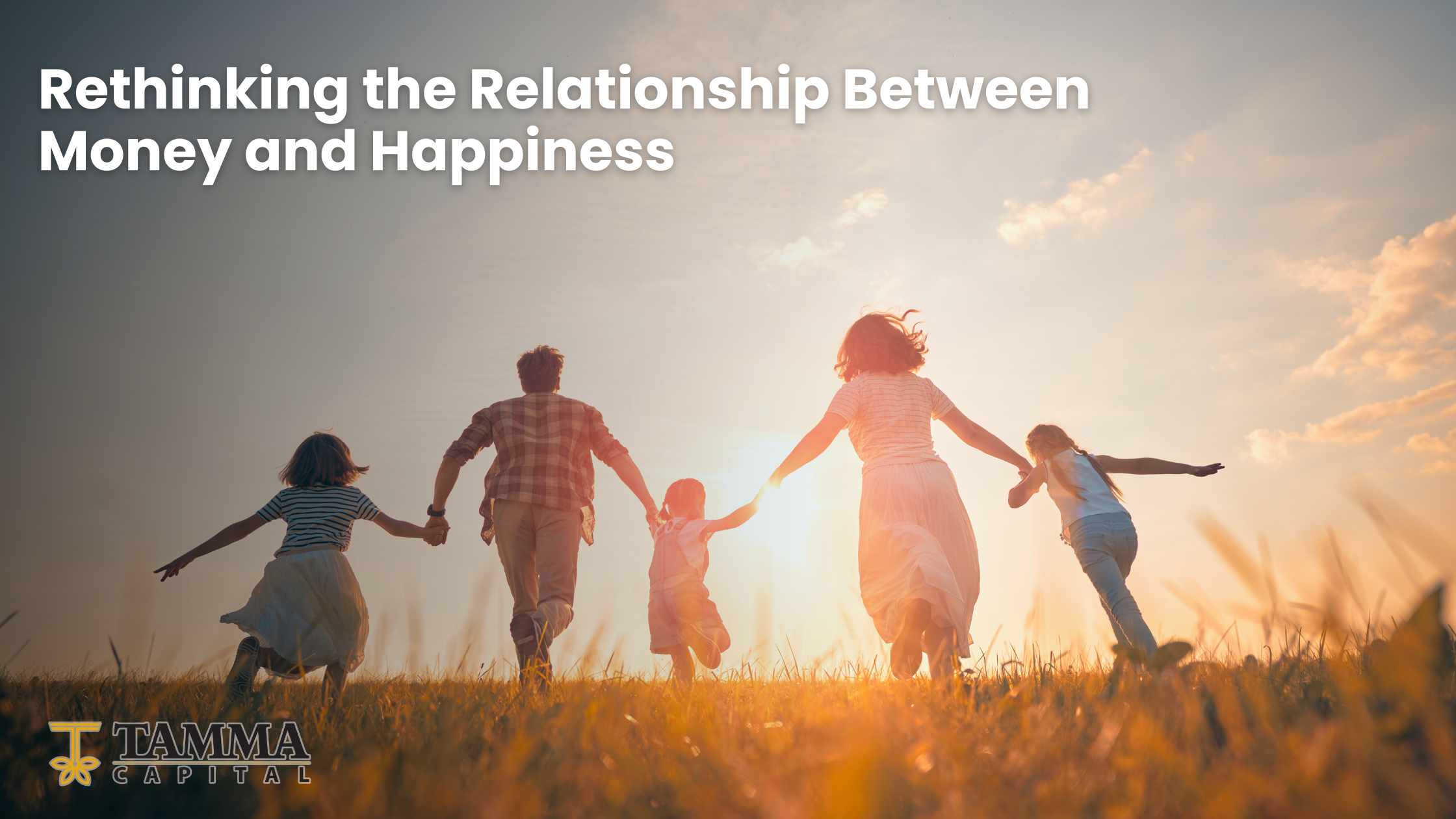Rethinking the Relationship Between Money and Happiness
One of the most persistent beliefs we carry is that more money will automatically lead to more happiness. It’s an easy story to believe—especially in a world where we’re constantly shown curated versions of people’s financial and lifestyle success. But when you peel back the layers, you start to see a deeper truth: money may be a tool, but it’s not a solution.
Freedom Is the Real Dividend of Wealth
At TAMMA, I talk a lot about aligning money with meaning. That conversation always begins with this reality: money, at its best, buys us freedom—not happiness. It buys us the option to say “no,” to walk away, to spend more time where it matters most. In that way, wealth is less about what you can afford and more about what you’re free to choose.
Morgan Housel put it best: “The highest form of wealth is the ability to wake up and say, ‘I can do whatever I want today.’” That doesn’t require millions in the bank. It requires clarity around what “enough” looks like for you and your family.
The Plateau Where More Stops Meaning Better
Research backs this up. There’s a well-documented income threshold—often called the happiness plateau—beyond which more money doesn’t meaningfully increase happiness. Why? Because once your basic needs and a sense of security are met, the law of diminishing returns kicks in.
At that point, fulfillment begins to depend more on how you use your time and money, not how much of it you have. I see this often with families in transition. The greatest peace doesn't come from financial statements—it comes from knowing your resources are working in service of your values.
Money Doesn’t Solve Emotional Problems
You can’t buy your way out of a strained marriage, a disconnected relationship with your kids, or a lack of purpose. I’ve seen financially successful individuals burdened by emotional strain—proof that while money can insulate us from some stressors, it can’t fix what’s broken on the inside.
This is why I often say that emotional clarity must walk hand in hand with financial planning. The most effective plans aren’t built on spreadsheets alone—they’re built on conversations. Conversations about what you want your life to look like five, ten, twenty years from now. About what really matters.
Comparison Is the Enemy of Contentment
Social media and modern culture make it nearly impossible not to compare. But, as Theodore Roosevelt wisely said, “Comparison is the thief of joy.” And Morgan Housel echoes that sentiment by pointing out that people tend to compare themselves to those slightly ahead—not recognizing that the bar will always move. There’s no finish line in that race.
When you focus on your own financial and emotional journey—not someone else’s highlight reel—you’re more likely to stay grounded in what’s actually meaningful. This is especially true when helping clients define their “enough.” That definition, personal as it is, forms the foundation of funded contentment—a term coined by Brian Portnoy that I’ve adopted and integrated into many of our planning conversations.
True Wealth Is Peace of Mind
Ultimately, the goal isn’t just to grow wealth—it’s to use it well. True wealth is the ability to sleep well at night because your money decisions reflect your values. It’s knowing that your spending supports your goals, your saving supports your flexibility, and your investing supports your future.
That kind of peace comes from intentionality. From aligning your money with your life—not the other way around. And from understanding that wealth is most meaningful when it funds a life of purpose, not just possessions.
A Personal Journey, Not a One-Size-Fits-All Answer
Finding happiness in the context of money isn’t about chasing a specific number. It’s about self-awareness, communication, and intentional decision-making. It’s about honest conversations—with yourself, your spouse, your family—and asking, “What do we really want our life to look like?”
At TAMMA, this is the heart of our planning process. Because when we can define what matters most, we can start to align our resources accordingly. And that alignment—between your finances and your values—is what leads to real, lasting contentment.

